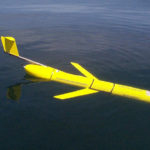
A garden of healthy, orange-coloured Eunicella verrucosa (sea fans) providing habitat for fish off Plymouth in the UK. Photographer: Sally Sharrock
It’s great that you’re having a Microbial Week on your blog; makes for a change from those pesky charismatic invertebrates hogging all the lime-light! Its good timing too, as we’ve just been able to complete some work which looks like microbes are getting the upper-hand in a battle with a very pretty species of gorgonian called Eunicella verrucosa. Off southwest Britain these pink seafans are not looking so pretty now, especially at Lundy Marine Reserve where Keith Hisock first spotted diseased gorgonians in 2002. The disease causes the outer tissues to turn grey and slough off the gorgonian skeleton, allowing a biofouling community to develop over the dying coral colony. This is the world’s first recorded outbreak of cold-water coral disease. When we first started to investigate the disease we had a hunch that fungi could be to blame, since they have caused widespread outbreaks of disease in warmer parts of the Atlantic. We couldn’t isolate any fungi but did find that Vibrio splendidus dominated the infected tissue. This wonderfully-named bacterium caused tissue necrosis when we infected seafans with it at elevated seawater temperatures, and it produced enzymes that broke down the outer tissues of the seafans. With more and more outbreaks of microbial disease being reported from the tropics it seems likely that the same will be true as we start to study coral communities in colder regions of the planet.

A dying seafan infected with the bacterium Vibrio splendidus off Plymouth in the UK. Photographer Keith Hiscock

Close up of healthy Eunicella verrucosa seafan polyps off Plymouth in the UK. Photographer Keith Hiscock
To find out more…(pdf) and The Times
*University of Plymouth, UK






‘diseased gorgonions’
A tremendous phrase (worthy of a sci-fi book) describing a worrying phenomenon.